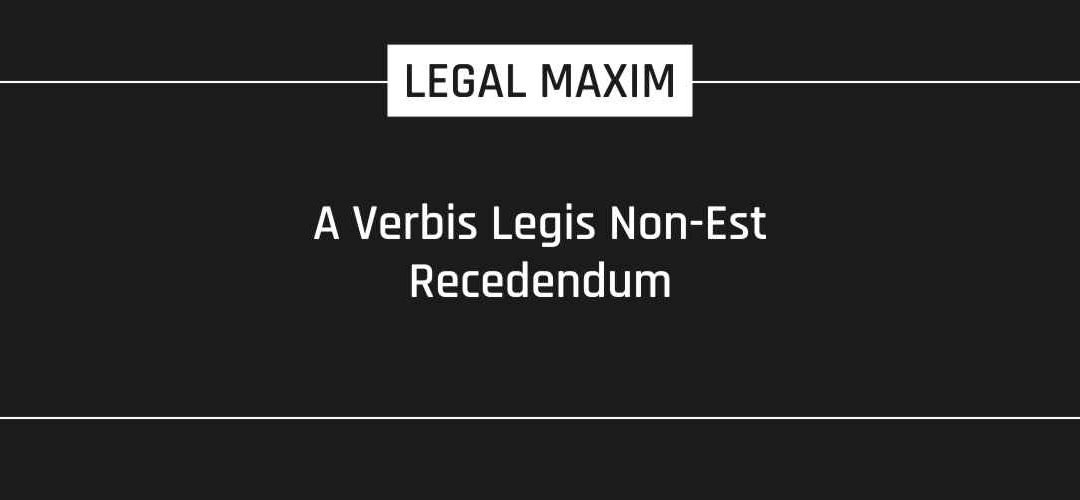Literal Meaning
From the words of the law, there must be no departure.
Origin
Latin
Explanation
The object of the maxim depends on the interpretation of statutes which is determine the intention of the legislature conveyed expressly or impliedly in the language used. The court interprets the legislature whenever a dispute arises before the court. Since the will of the legislature is generally expressed in the form of statutes, the prime concern of the court is to find out the intentions of the legislature in the language used by the legislature in the statute. It is the duty of the court not to modify the language of the Act and if such meaning is clear and unambiguous, the effect should be given to the provisions of a statute. The concept behind such a principle is that the legislature, being the supreme law-making body must know what it intends in the words of the statute. The literal interpretation has been called the safest rule because the legislature’s intention can be deduced only from the language through which it has expressed itself.
Case Laws
In Hardeep Singh Vs. State of Punjab and Ors., the Supreme Court held that “It is a settled principle of law that an interpretation which leads to the conclusion that a word used by the legislature is redundant, should be avoided as the presumption is that the legislature has deliberately and consciously used the words for carrying out the purpose of the Act. The legal maxim “A Verbis Legis Non-Est Recedendum” which means, from the words of the law, there must be no departure has to be kept in mind.”
The Income Tax Appellate Tribunal ITAT Pune referring to the maxim A verb is legis non-est referendum in Shri Lunawat Jayant Maniklal Vs. Dy. C.i.T. held that the meaning of the maxim is that a literal construction of law is not to be departed from. The general principle for the interpretation of the taxing statute is that the statute has to be strictly construed. The well-established rule in the familiar words of LORD WENSLEYDALE, reaffirmed by LORD HALSBURY and LORD SIMONDS, means; “The subject is not to be taxed without clear words for that purpose; and also, that every Act of Parliament must be read according to the natural construction of its words.
The Supreme Court in Rohitash Kumar and ors. Vs. Om Prakash Sharma held that “The legal maxim a verb is legis non-est referendum means, “From the words of the law, there must be no departure”. A section is to be interpreted by reading all of its parts together, and it is not permissible, to omit any part thereof. The Court cannot proceed with the assumption that the legislature while enacting the Statute has committed a mistake; it must proceed on the footing that the legislature intended what it has said; even if there is some defect in the phraseology used by it in framing the statute, and it is not open to the court to add and amend, or by construction, make up for the deficiencies, which have been left in the Act. The Court can only iron out the creases but while doing so, it must not alter the fabric, of which an Act is woven. The Court, while interpreting statutory provisions, cannot add words to a Statute, or read words into it which are not part of it, especially when a literal reading of the same, produces an intelligible result.”
